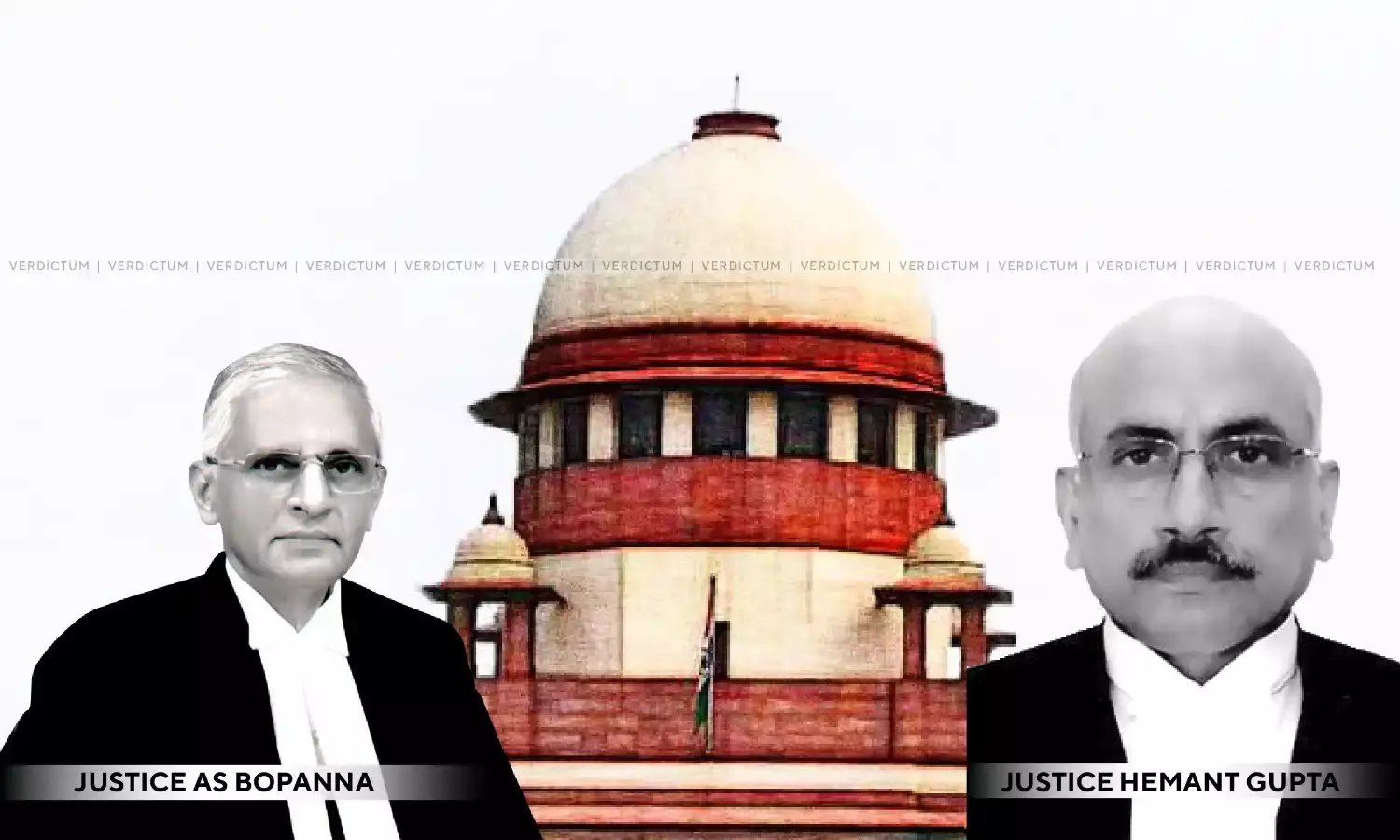Temple Land Is Owned By Deity, Pujari Neither Owner Nor Occupier: Supreme Court
While interpreting the M.P. Land Revenue Code, 1959, the Bench also held that the District Collector cannot be shown as a Manager of a Temple property unless the Temple is vested with the State.
A two-judge Bench comprising of Justices Hemant Gupta and A.S. Bopanna on Monday held that the presiding deity is the owner of the property of the temple and the deity's name alone shall be mentioned in the revenue records as per the Madhya Bharat Land Revenue and Tenancy Act, Samvat 2007 and the M.P. Land Revenue Code, 1959, while the name of the pujari cannot be recorded in the column of ownership or occupancy. The Bench found that there is no law mandating recording of the name of a manager in the land records relating to temple lands.
An Appeal was preferred by the State before the Supreme Court against the Judgment passed by a Division Bench of the High Court of Madhya Pradesh upholding the Judgment of the Single Judge quashing two circulars issued by the M.P. Government (dated 21/3/94 & 7/6/08) to delete the names of pujaris from the revenue records.
The arguments of the Appellant before the Court were that the State Government had the power to issue the executive directions under the M.P. Land Revenue Code 1959. Also, these circulars were issued to safeguard the temple's property from illegal sale, mortgage, or lease. While the Respondent, an Association of Pujaris, contended that they possessed Bhumiswami (Ownership) rights which cannot be taken away through executive directions in the form of circulars issued by the State.
The main issues were –
- Whether a priest can be treated as a Bhumiswami (Owner) of the temple.
The Apex Court after analysing previous Judgments of the MP High Court and the Gwalior Act held that, "The Law is clear on the distinction that the Pujari is not a Kashtkar Mourushi, i.e., tenant in cultivation or a government lessee or an ordinary tenant of the maufi lands but holds such land on behalf of the Aukaf Department for the purpose of management. The Pujari is only a grantee to manage the property of the deity and such grant can be reassumed if the Pujari fails to do the task assigned to him, i.e., to offer prayers and manage the land. He cannot be thus treated as a Bhumiswami."
Also, the Court observed that it's the deity alone who would be considered as the owner of the temple as it is a juristic person. "The occupation of the land is also by the deity which is carried out by the servant or the managers on behalf of the deity. Therefore, the name of the manager or that of the priest is not required to be mentioned in the column of occupier as well," the Court noted.
- Whether by executive instruction can the State Government order the deletion of the name of pujari from the revenue record and can the name of the District Collector be added as the manager of the temple?
The Bench after referring to the precedents held that it was not a mandate to mention the name of pujari or manager in the revenue records. "No rule has been brought to the notice that the name of the manager has to be recorded in the land records. In the absence of any prohibition either in the statute or in the rules, the executive instruction can 23 be issued to supplement the statute and the rules framed thereunder. Such instructions do not contravene any of the provisions of the Code or the rules. Therefore, they cannot be said to be illegal or in excess of the authority vested in the State Government," the Court held.
The Court also held that the impugned circulars were applicable to all temples except the ones that satisfy the competent forum of it being a private temple, not open to the public.
The Court set aside the Judgment of the Division Bench of the Madhya Pradesh High Court and dismissed the Writ Petition.
(The State of Madhya Pradesh & Ors. v. Pujari Utthan Avam Kalyan Samiti & Anr.)




